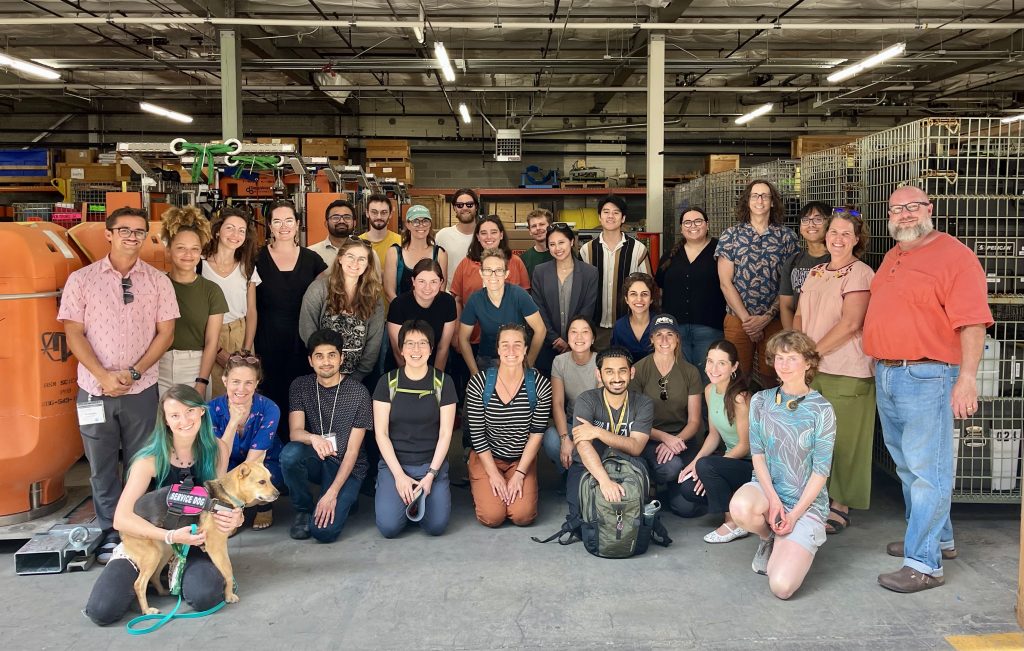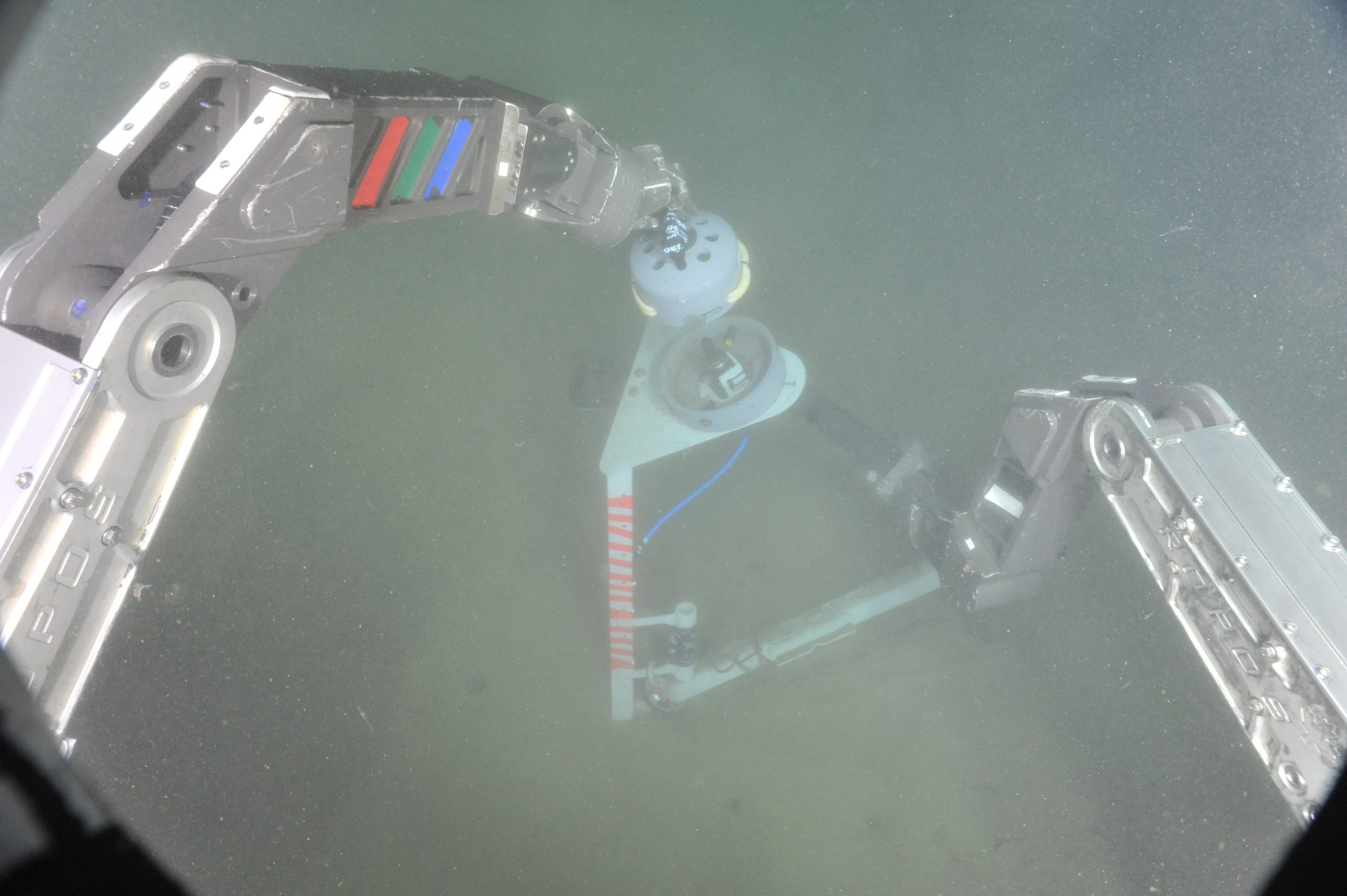The Ocean Observatories Initiative (OOI), funded by the U.S. National Science Foundation (NSF), is a science-driven ocean observing network that collects and delivers physical, chemical, geological, and biological ocean data from more than 900 instruments. The network consists of various platforms including moored buoys, cabled arrays spanning the seafloor and water column, and autonomous underwater vehicles. Active and passive acoustic instruments including echosounders, current profilers, bioacoustic sonars, broadband hydrophones, and low frequency hydrophones, are part of the NSF OOI sensor network.
From July 14-18, 2025, the NSF-funded OOI Facility Board (OOIFB) hosted a summer school focused on the access, analysis, and interpretation of acoustics data and introducing complementary oceanographic data available through the NSF OOI. This week-long, intensive program featured a mix of targeted lectures, hands-on tutorials, and practical exercises working with real-world examples and NSF OOI data products. The summer school was co-chaired by the University of Washington’s Dr. Wu-Jung Lee and Dr. Shima Abadi.
Participants could expect to finish the 5-day program with:
- A high level understanding of how sound propagates under water and the main factors influencing propagation.
- An awareness of passive and active acoustic instruments deployed through NSF OOI (e.g. hydrophones and echosounders) and the data sets available.
- The ability to navigate NSF OOI data portals to access and download acoustic and oceanographic data products.
- Basic processing methods for acoustic data (including coding, and working with data in JupyterHub environments).
- A comprehensive understanding about what scientific questions can be addressed using NSF OOI data.
- Connections to a network of professionals who are using or planning to use NSF OOI data in their research and education activities.
This summer school was aimed at researchers with an interest in underwater acoustics, and the use of OOI data in their research and education activities. A basic understanding of acoustics was preferred, but not required. High-level primers on underwater acoustics were provided during the summer school. Participants also had a general understanding of oceanography, and some background knowledge/experience with coding (python was the main programming language used in workshop tutorials, but participants also had the opportunity to work with their language of choice). All relevant experiences were considered in the application review process.
Approximately twenty-three advanced graduate students, post-doctoral fellows, and/or early-career scientists, from a breadth of research disciplines were selected as participants. Other career level researchers are encouraged to apply and will be considered. [A full attendance list will be available shortly.]

This agenda provides a detailed overview of program scope and goals. Other, archived summer school materials and resources, will become available in the coming months.
This summer school was hosted at the University of Washington in Seattle, Washington. In-person participation was requested for all five days of the summer school program. Travel support was available for summer school participants; however, only applicants from U.S. institutions could be supported.
Online applications were accepted until 11:59 pm (ET) on March 18, 2025. After this date, no other applications could be considered. Participant selections and notifications were made in April 2025.
If you have any questions, please contact Holly Morin (holly@ooifb.org).

